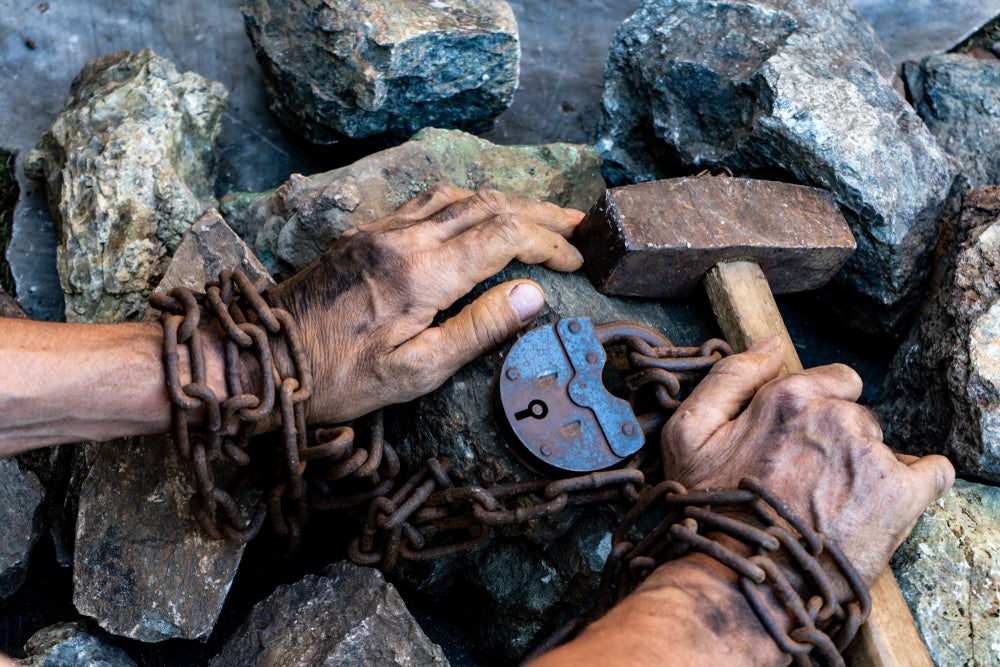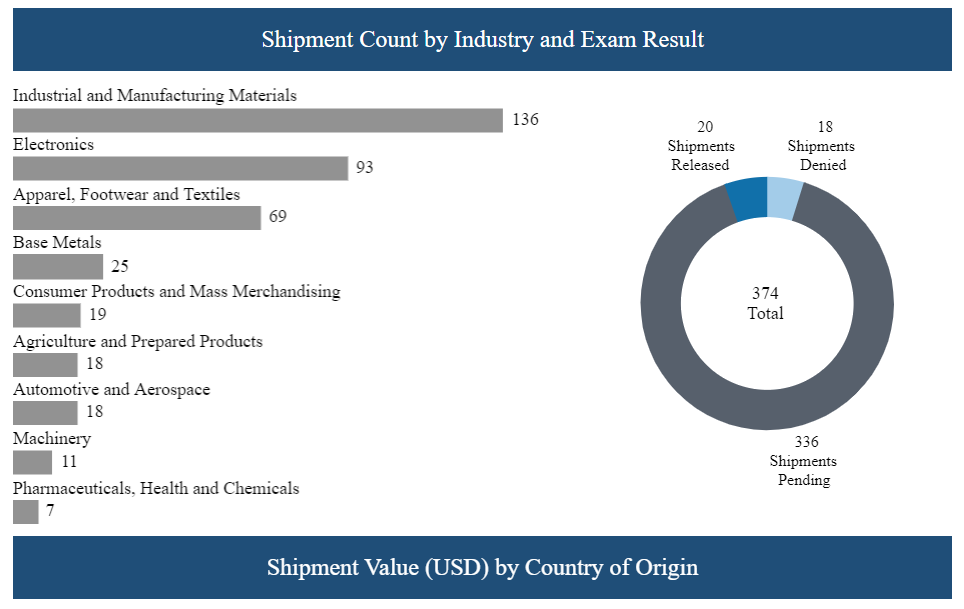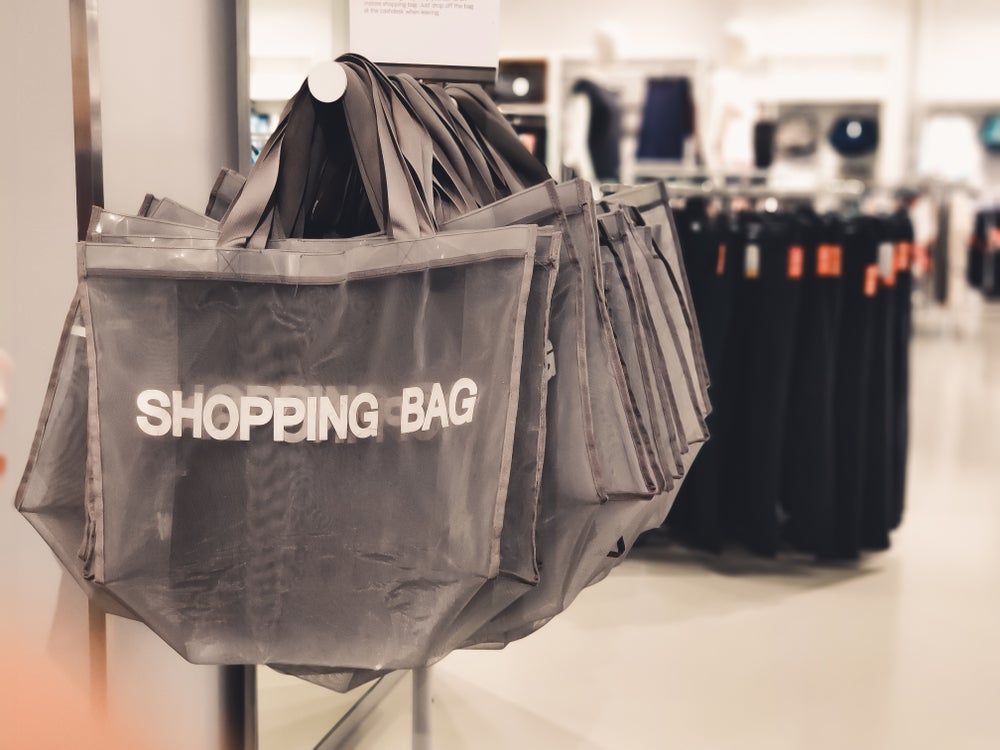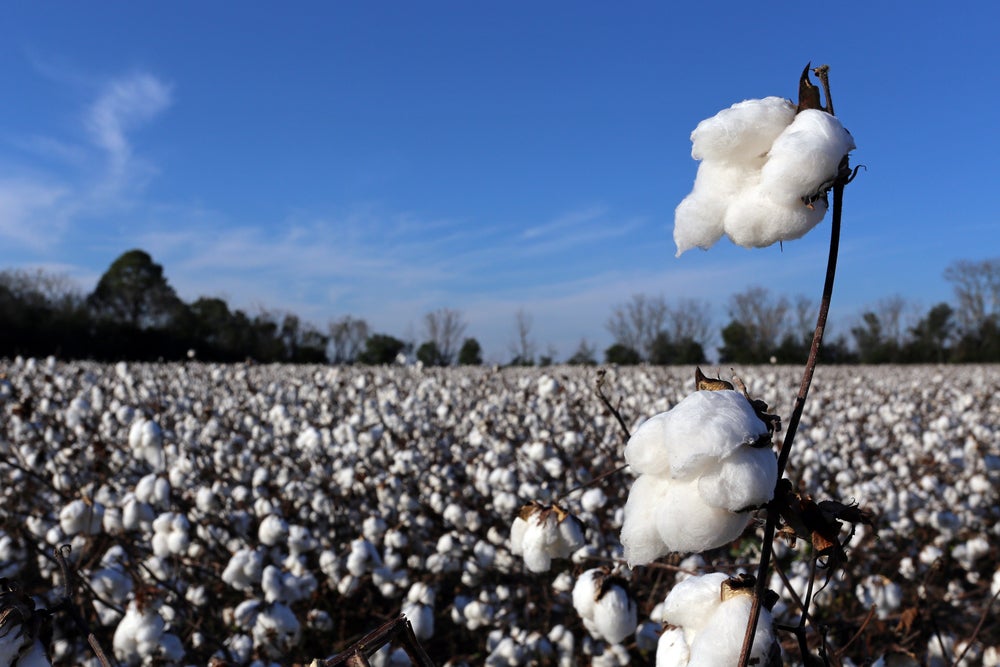
The US Customs and Border Protection (CBP) continues to support the US government’s efforts to eliminate goods from the supply chain made from forced labour.
In July, CBP denied 18 shipments out of 374 amounting to $107m as part of the Uyghur Forced Labor Prevention Act (UFLPA).
Overview of recent statistics

- Out of the total 374 shipments in July 2023, apparel, footwear and textiles amounted to 69 shipments which is the third-highest share in terms of shipment count by industry.
- The total 69 shipments in apparel, footwear and textiles were worth $2.9m. Out of which six ($0.42m) shipments were released, five ($0.18m) were denied, and 58 ($2.33m) are pending review.
- For 2023 to date, apparel, footwear and textile accounted for 686 shipments in numbers and $33.73m in value. Out of which 192 ($18.58m) shipments were released, 270 ($4.86m) were denied and 224 ($10.29m) remain pending.
- China accounts for the highest shipment value for apparel, footwear and textile throughout 2023 so far, amounting to $15.74m, followed by Vietnam ($14.79m), and all other locations ($3.21m).
CBP updates its dashboard providing statistics on shipments subjected to UFLPA reviews and enforcement actions every month. The tracker was first published on 14 March this year.
Court ruling may support fashion companies navigating forced labour detention
In a court ruling from 27 July, the United States Court of International Trade challenged US CBP’s allegation on an importer of pencils under the Enforce and Protect Act of 2015 (EAPA).
CBP alleged the importer was falsely claiming the pencils to be of Philippines origin and thus not subject to antidumping duties assessed on certain pencils from China.
The allegations were based on evidence such as photographs, invoices and purchase orders by CBP, however, it presented a redacted version to the importer accused. The court ruling also stated that the importer was denied an opportunity to rebut this evidence.
How well do you really know your competitors?
Access the most comprehensive Company Profiles on the market, powered by GlobalData. Save hours of research. Gain competitive edge.

Thank you!
Your download email will arrive shortly
Not ready to buy yet? Download a free sample
We are confident about the unique quality of our Company Profiles. However, we want you to make the most beneficial decision for your business, so we offer a free sample that you can download by submitting the below form
By GlobalDataThe Court of Appeals for the Federal Circuit (CAFC) concluded that CBP’s failure to provide the importer with the right information was a “clear violation of due process.”
International law firm Sandler, Travis & Rosenberg (ST&R) suggests the court’s reasoning, in this case, could potentially be applied to CBP detentions of imports under the Uyghur Forced Labor Prevention Act, which establishes a rebuttable presumption that goods made wholly or in part in China’s Xinjiang Uyghur Autonomous Region are made with forced labour and are therefore excluded from entry into the US.
The law firm states: “Companies dealing with affected goods have long complained that CBP provides little to no information about why it detains specific shipments under the UFLPA or what companies can do to secure their release. The CAFC ruling could be used to argue that CBP has an obligation to provide companies with the information upon which a UFLPA detention decision is based as well as the opportunity to refute it.”
ST&R further argues this decision could also help companies that repeatedly receive detentions yet subsequently prove there is no UFLPA connection for suppliers that are not on any withhold release list or any of the UFLPA lists.
ST&R continues: “CBP has been withholding evidence on shipments claiming that the goods are violating the UFLPA but has not been providing the importers with any information as to why the suppliers are repeatedly targeted even though the supply chain has cleared many times.”
The US Select Committee on the Chinese Communist Party published a report in June titled ‘Fast Fashion and the Uyghur Genocide: Interim Findings’ after quizzing fast fashion brands Shein and Temu as well as sports brands Nike and Adidas about their efforts to comply with the Uyghur Forced Labor Prevention Act (UFLPA).
The report focused on Temu and Shein’s use of Section 321 of the Tariff Act of 1930, which is known as the de minimis rule and allows importers to avoid customs duties on incoming packages that are valued at less than $800.







